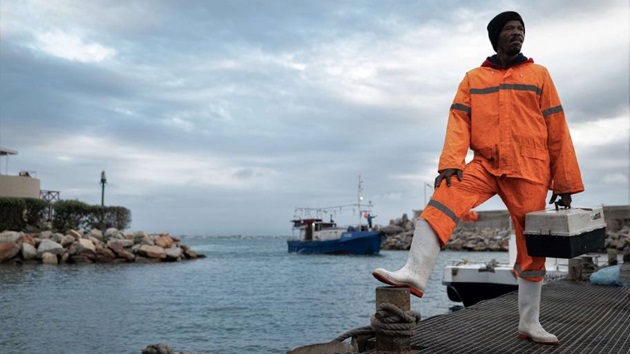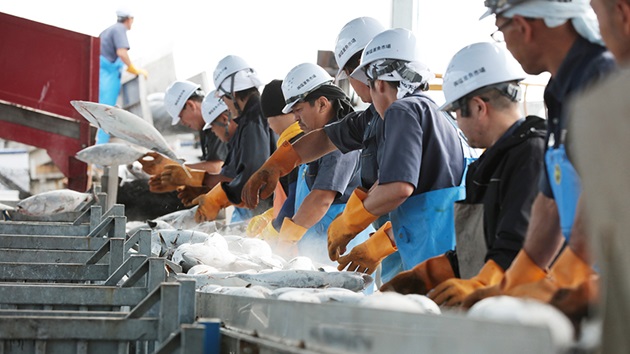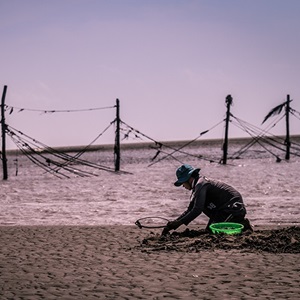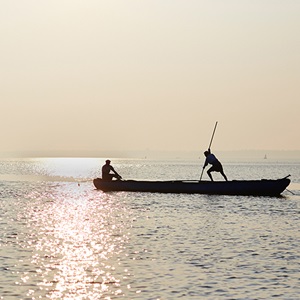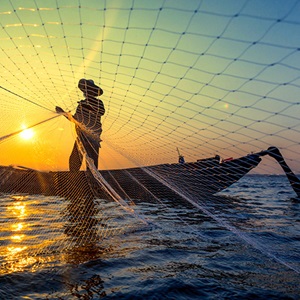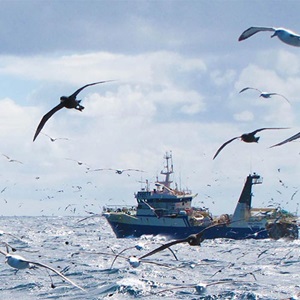Meet the people behind sustainable seafood
The MSC program is a collective effort that could not exist without the many fishers around the world who work to safeguard stocks, ecosystems and their own livelihoods.
Fishing is more than just a job, it forms the backbone of many communities. When you buy seafood with the blue MSC label you’re not only helping preserve fish stocks, but also a way of life
Read about the passionate people bringing sustainable seafood to your plate.
Sounding out seals
Sustainable management has helped Namibia’s hake fishery to thrive. Now fishers and scientists are testing new ways to reduce unintended interactions with Cape fur seals.
The Hands-on approach
The clam fishers of Ben Tre, Vietnam have no fishing lines, but they have grown skilled in their picking and kept their catch sustainable.
The return of Iberian sardines
When sardine stocks dropped seriously low, the Portuguese and Spanish fishing sectors came together to ensure the livelihoods of fishers and the health of their beloved fish.
Clam fishers vs climate change
Scientific guidance may enable this sustainable fishery to be as long lived as the clams they harvest.
Bust to boom
In 2011 jack mackerel stocks targeted by Chilean fishers collapsed, but now Chile has a certified sustainable fishery and a healthy fish population.
Sustainable Scotland
Members of the Scottish Fisheries Sustainability Accreditation Group are managing whitefish stocks while protecting habitats and embracing new technology.
Maldives skipjack tuna
The Indian Ocean archipelago's journey from sail-powered fishing to major global exporter of sustainably-caught skipjack tuna.
Lessons from history
In the 1970s Spanish cod fishers left Canadian waters for the Northeast Arctic where they've kept stocks sustainable and implemented a host of improvements to protect other species and habitats.
Australian innovation
Though certified sustainable for over a decade, Australia’s largest prawn fishery continues to work with scientists to find innovative ways to protect biodiversity while remaining efficient and profitable.
Japan’s all-in-one tuna company
From fishing to processing to sales: Owasebussan is revitalising the Japanese tuna industry, sustainably.
Western Australia rock lobster
The world's first ever MSC certified fishery has been a leader in sustainable fishing for more than two decades.
Improving fisheries
The women of the Indonesia Blue Swimmer Crab fishery
In Indonesia women are at the forefront of a sustainable fishing business. Meet the female processors and factory workers of the blue swimmer crab industry.
South Africa's squid fishers
The Cape's Hope: How South Africa’s squid jiggers are fishing for the future.
More stories
Tuna fishing after the tsunami
How one man's vision brought a sustainable future to Japan's devastated Tōhoku region.
Julien, the Normandy lobster fisherman
How a young fisher has made a commitment to the oceans.
South African hake - Fishing for a future
How a sustainable hake fishery in South Africa is supporting livelihoods and communities.
The first sustainable pearl fishery
The story of Western Australia's pioneering silverlip pearl oyster fishery.
PNA tuna - Small islands, big opportunities
There's a good chance the last can of tuna you bought came from one place and after the global appetite for tuna soared and illegal and unsustainable fishing put tuna stocks at risk, these countries took control.
Salmon first
Meet the fishers of Bristol Bay in Alaska, a state committed to sustainable harvest.
Beating bird bycatch
Smarter fishing practices dramatically reduce the number of seabird deaths in a Southern ocean toothfish fishery.













